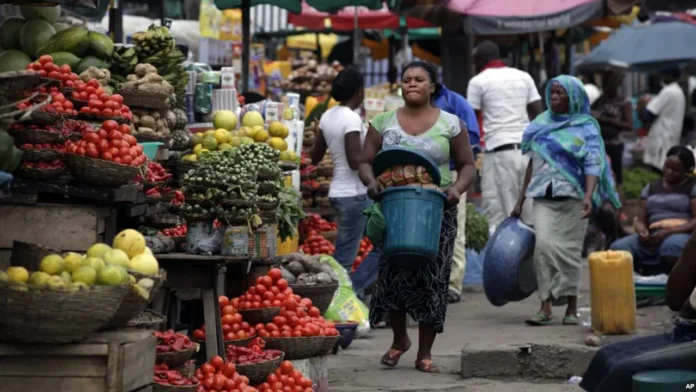The National Bureau of Statistics (NBS) has identified Benue, Ekiti, and Kebbi as the states experiencing the highest year-on-year food inflation rates in Nigeria, according to its April Consumer Price Index (CPI), which was released on Thursday.
The report indicates that Benue recorded the most significant annual increase in food prices at 51.76%, followed by Ekiti at 34.05%, and Kebbi at 33.82%.
This means that food costs have risen more sharply in these three states than anywhere else in the country.
Conversely, Ebonyi (7.19%), Adamawa (9.52%), and Ogun (9.91%) saw the slowest year-on-year increases in food prices.
Looking at monthly changes, Benue, Ekiti, and Yobe recorded the sharpest spikes in April, with Benue alone seeing a 25.59% increase, followed by Ekiti (16.73%) and Yobe (13.92%).
The surge in Benue’s food inflation is likely linked to recent violent attacks in the North Central region, which have resulted in numerous deaths and mass displacement, disrupting local food supply chains.
Meanwhile, Ebonyi (-14.43%), Kano (-11.37%), and Ogun (-7.06%) reported monthly declines in food inflation, showing that food prices dropped in those states.
Nationally, the year-on-year food inflation rate stood at 21.26% in April, while the month-on-month rate eased slightly to 2.06%, down from 2.18% in March.
The NBS attributed the national decline to falling prices of key food items such as maize flour, wheat, dried okra, yam flour, soybeans, rice, Bambara beans, and brown beans.
Overall, Nigeria’s headline inflation rate declined to 23.71% in April, down from 24.23% in March.

